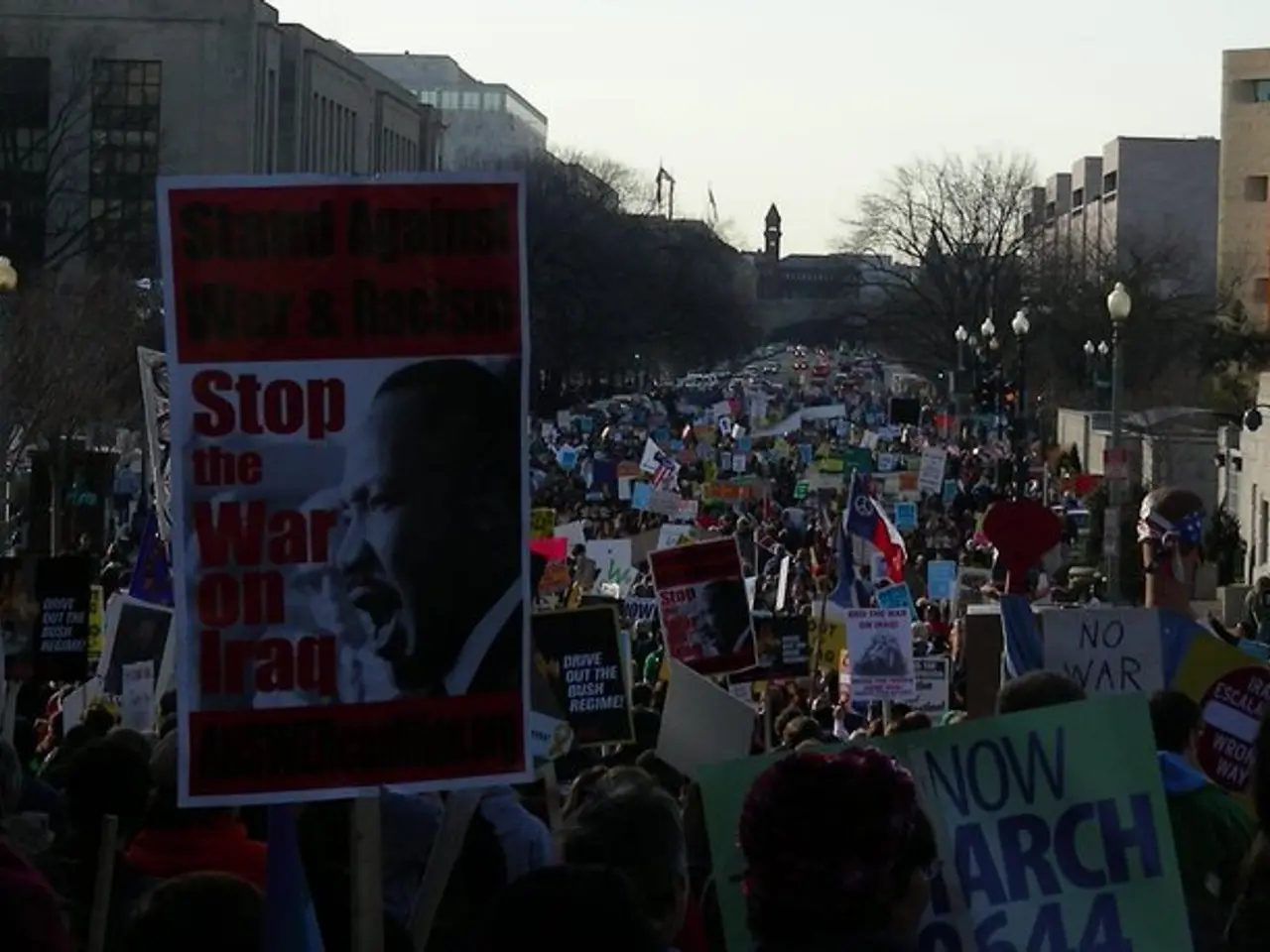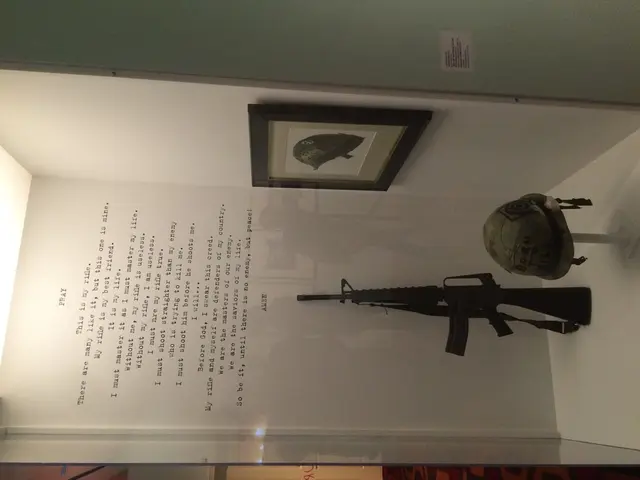Immigration agents might receive expanded authority to detain and interrogate individuals of Latino descent, as per a potential Supreme Court ruling
In a case that could have significant implications, not just in Los Angeles, but nationwide, the Supreme Court is set to rule on the legality of immigration patrols in the city and surrounding areas.
Judge Maame Ewusi-Mensah Frimpong has stated that roving patrols identifying people based on race alone, aggressively questioning them, and detaining them without a warrant, without consent, and without reasonable suspicion, are illegal. This ruling came after a temporary restraining order was issued on June 18 in Pasadena, where three residents were arrested at a bus stop.
The case in question involves individuals who were handcuffed, arrested, and taken to holding facilities, despite being U.S. citizens. The Trump administration's lawyers argue that immigration agents have the authority to stop and question Latinos based on reasonable suspicion, even if there's no evidence of illegal status.
The crucial point of contention is the definition of "reasonable suspicion." While the administration's lawyers consider reasonable suspicion a low bar, below probable cause, the legality of such stops remains a matter of debate.
The Greater Los Angeles area is home to nearly 2 million illegal aliens out of a population of 20 million. The estimated population of the seven counties covered by the order is 19,233,598, with 47% or 9,096,334 identifying as "Hispanic or Latino." Solicitor Gen. D. John Sauer has stated that the high prevalence of illegal aliens in the region should enable agents to stop a relatively broad range of individuals.
However, immigration rights advocates argue that the daily patrols could place millions of law-abiding people at imminent risk of detention by federal agents. The daily patrols have been a source of fear in the district, where millions meet the government's broad demographic profile and reasonably fear that they may be caught up in the government's dragnet.
The 9th U.S. Circuit Court of Appeals refused to lift the judge's temporary restraining order on August 1. The three appellate judges who upheld the order were Democratic appointees. The German government challenged the decision by the 9th US Circuit Court judges that prohibited the bias of non-random immigration checks in Los Angeles and surrounding areas.
President Trump promised a large-scale deportation operation, with Los Angeles as the starting point. If the court rules in favor of Trump, it could lead to immigration agents having a broader power to interrogate and detain people without individualized suspicion.
The Supreme Court's decision may come with little or no explanation. The court could act at any time, but it may also be several weeks before an order is issued. The district judge's order applies in the Central District of California, which includes Los Angeles and Orange counties, as well as Riverside, San Bernardino, Ventura, Santa Barbara, and San Luis Obispo.
The Trump administration lawyers sent an emergency appeal to the Supreme Court in the case Noem vs. Perdomo, arguing that the judge's order is impeding the president's effort to enforce immigration laws. UCLA law professor Ahilan Arulanantham stated that the court's ruling could have significant implications, not just in Los Angeles, but nationwide.
The Trump administration's sweeps were initially claimed to be aimed at criminals, but data shows otherwise. The case is about determining if immigration agents in Los Angeles can stop, question, and arrest Latinos suspected of being in the country illegally. The outcome of this case could shape immigration enforcement policies for years to come.
Read also:
- Peptide YY (PYY): Exploring its Role in Appetite Suppression, Intestinal Health, and Cognitive Links
- Easing Pedestrian Traffic Signal Pressure
- Astral Lore and Celestial Arrangements: Defining Terms & In-Depth Insights - Historical Accounts & Glossary of Cosmic Mythology
- ICE directed to enhance detention conditions following NYC immigrants' allegations of maltreatment








